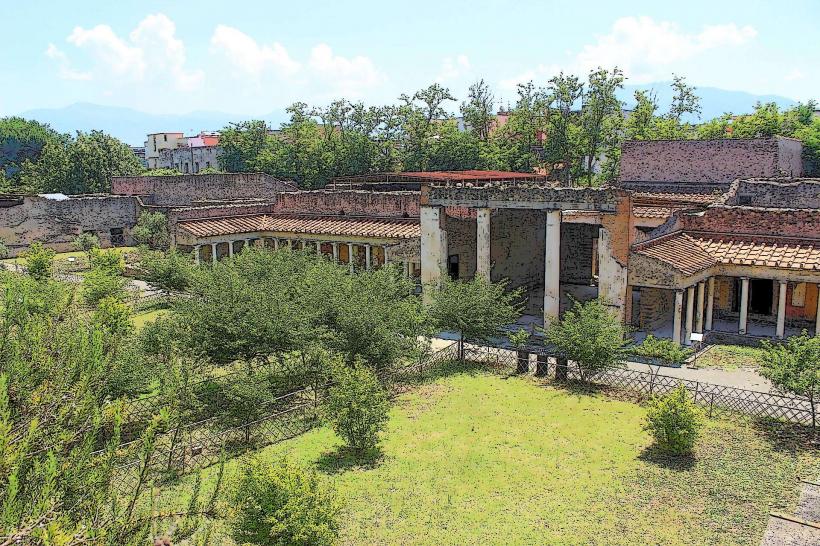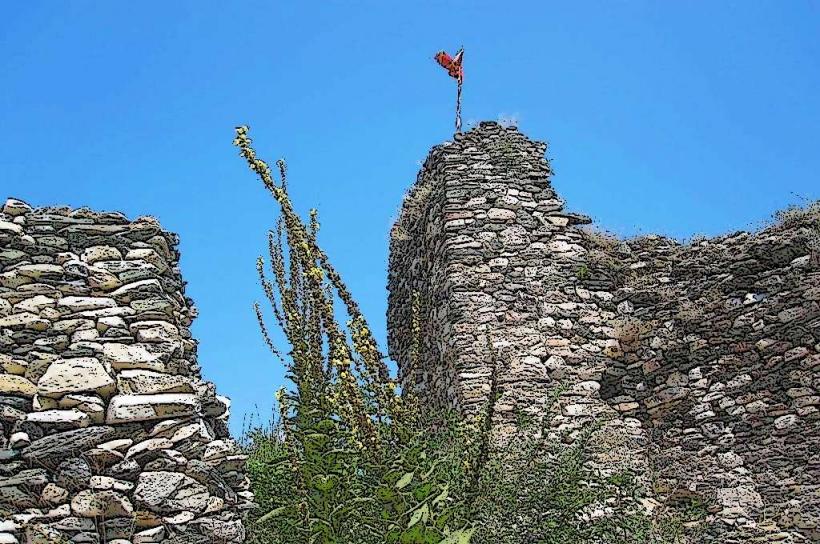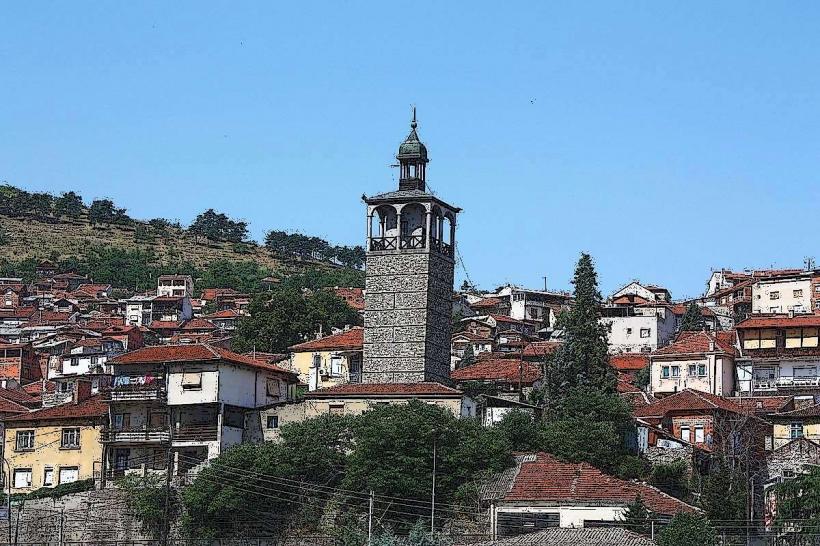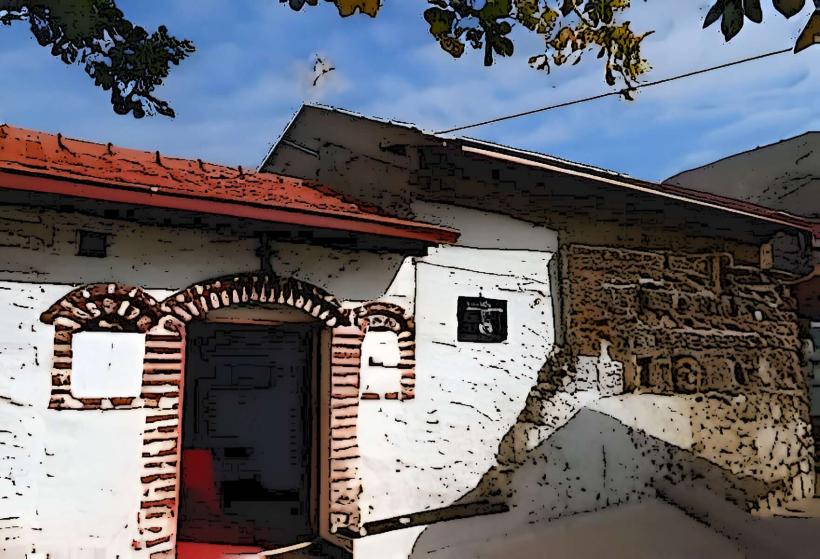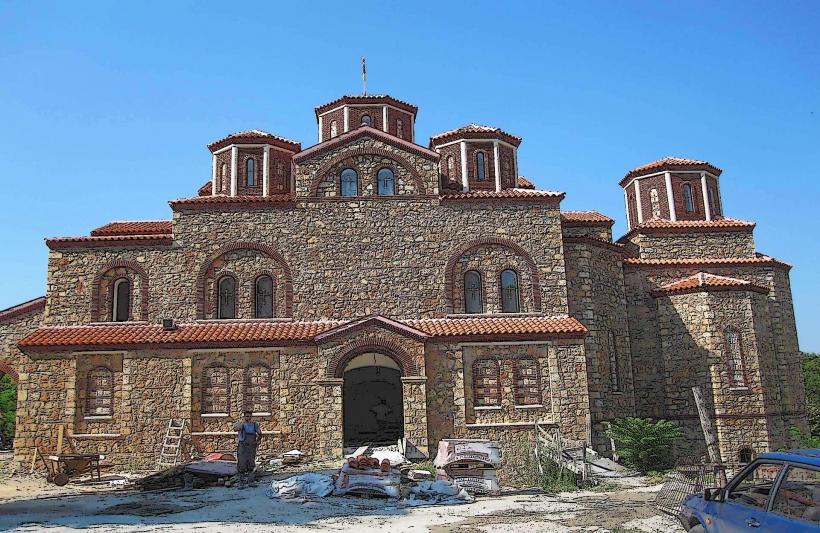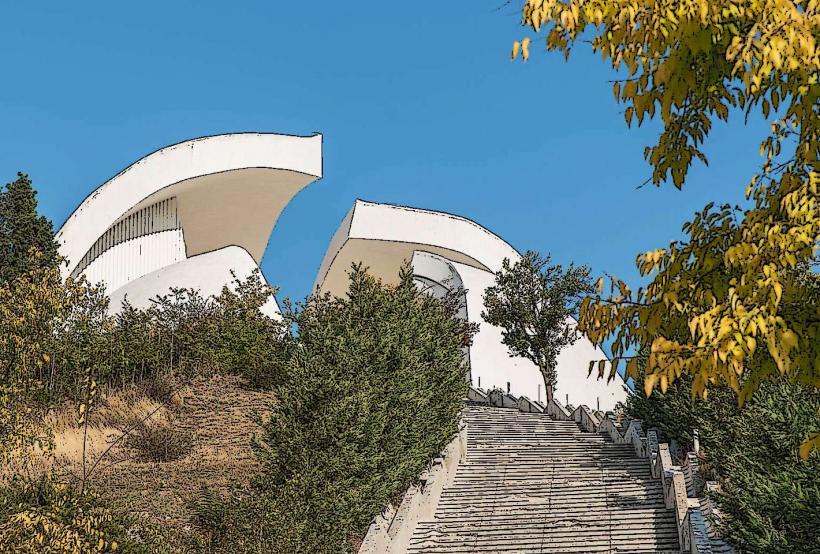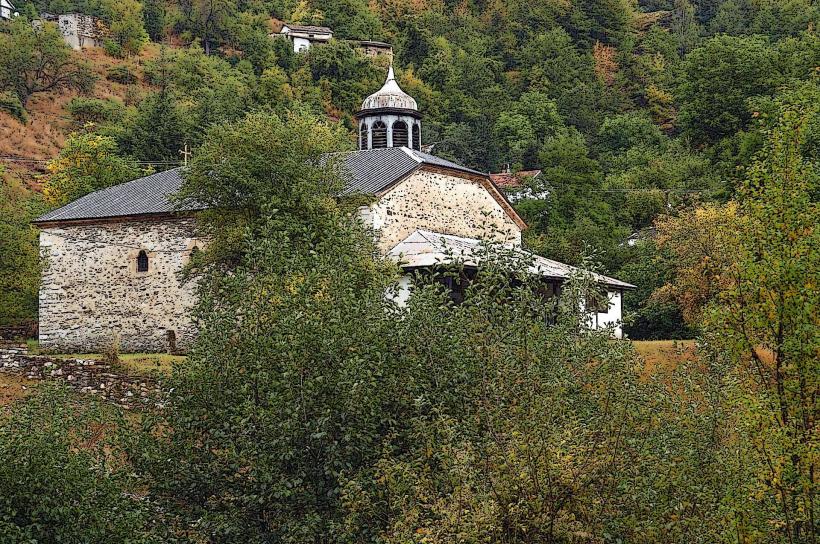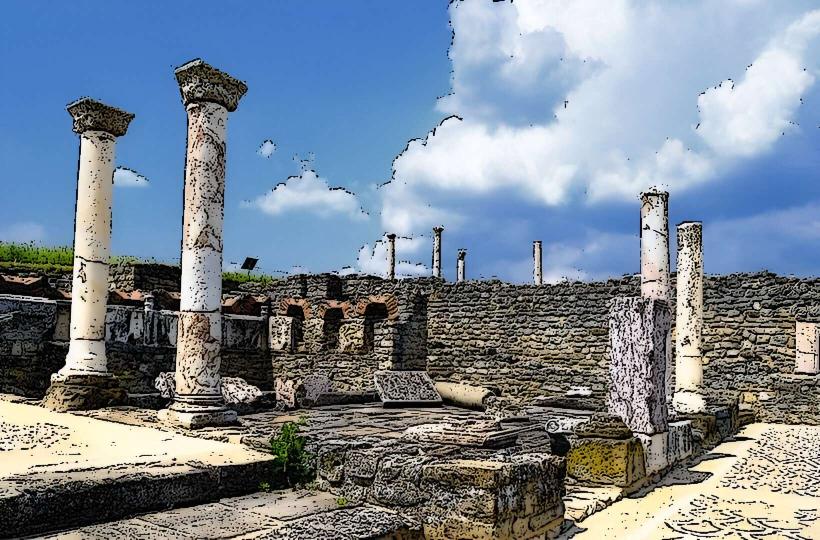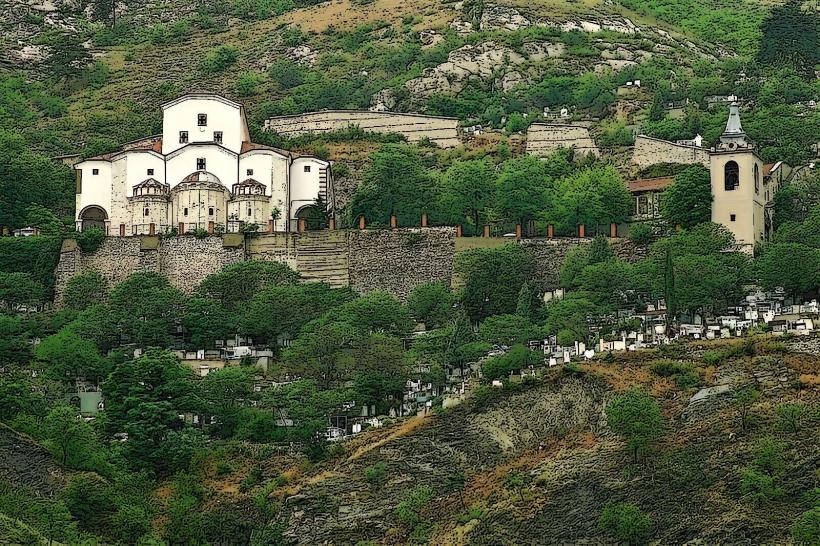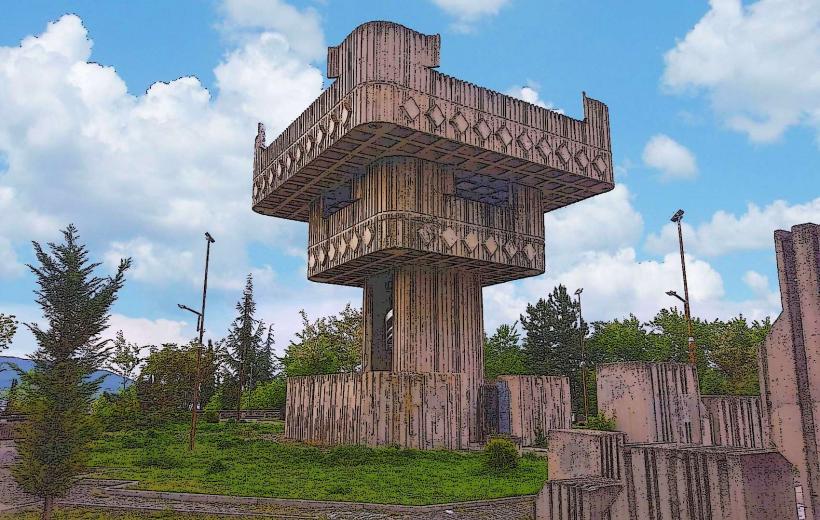Information
Landmark: Museum of VelesCity: Veles
Country: North Macedonia
Continent: Europe
Museum of Veles, Veles, North Macedonia, Europe
The Museum of Veles is a regional institution dedicated to preserving and exhibiting the cultural and historical heritage of the Veles region. It is situated in the central part of the city of Veles, North Macedonia.
Visual Characteristics
The museum is housed within a preserved 19th-century urban house, characterized by its traditional Balkan architectural style. The building features a two-story structure with a white-plastered facade and prominent dark wooden window frames and eaves. Its design includes a typical enclosed courtyard and a symmetrical front elevation, reflecting the period's residential architecture.
Location & Access Logistics
The museum is located on "Kočo Racin" Street, approximately 0.5 kilometers from the city center of Veles. Access is primarily by foot from the main square. Limited street parking is available in the vicinity, and several public parking lots are within a 5-minute walk. The local bus network serves the city, with stops generally located within walking distance of the central area.
Historical & Ecological Origin
The museum was established in 1946. It occupies the former house of Jordan Hadži Konstantinov-Džinot, a prominent 19th-century Macedonian educator and writer. The building itself dates back to the mid-19th century, originally serving as a private residence before its conversion into a public cultural institution.
Key Highlights & Activities
Visitors can explore archaeological collections featuring artifacts from ancient sites like Stobi and Bylazora. Ethnographic exhibits display traditional costumes, tools, and household items from the Veles region. The museum also presents historical documents and photographs detailing the city's development and significant events.
Infrastructure & Amenities
Restroom facilities are available on-site. The interior of the historical building provides natural shade. Cellular signal (4G/5G) is generally strong within the museum and surrounding urban area. Several cafes and restaurants are located within a 200-meter radius of the museum entrance.
Best Time to Visit
The museum is best visited during weekday mornings, shortly after opening, to experience fewer crowds. The months of April, May, September, and October offer the most pleasant weather conditions for exploring Veles. Interior lighting is consistent throughout the day, making photography possible at any operating hour.
Facts & Legends
The building housing the museum is recognized as a cultural monument, preserving the architectural heritage of Veles. Jordan Hadži Konstantinov-Džinot, whose house it was, is considered one of the founders of modern Macedonian literature and education, making the site a direct link to the national revival movement.
Nearby Landmarks
- Clock Tower of Veles: 0.3km West
- Monument to Kočo Racin: 0.4km North
- Vardar River Bridge: 0.2km South
- St. Panteleimon Monastery: 3.5km East

